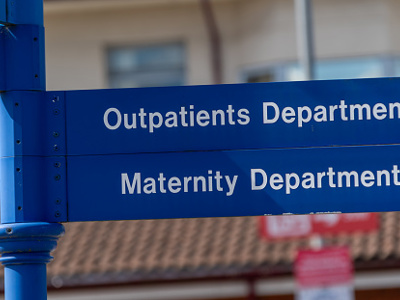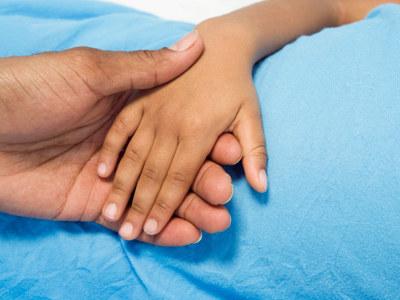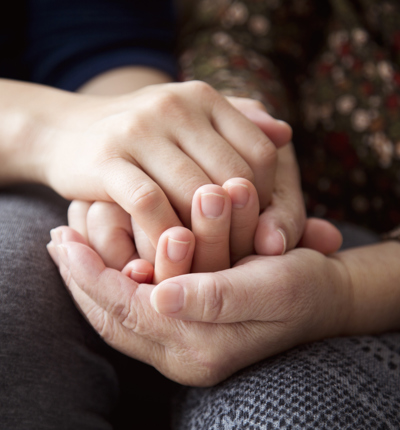
Stillbirth and neonatal deaths
Contact our specialist team today for help and support
There are various causes for stillbirths or neonatal deaths. Many of these are unavoidable and can occur in healthy babies, with unidentifiable causes, despite the advancements in healthcare and medical science.
In 2018, there were 4.1 stillbirths per 1,000 births in England and Wales. Compared to many other countries, the UK has a relatively high neonatal mortality rate too, with 2.8 neonatal deaths per 1,000 live births in 2016.
Other causes of stillbirths can be explained but are generally unavoidable, such as:
- Complications with the placenta
- Haemorrhage (bleeding) during or before labour
- Pre-eclampsia – causing high blood pressure in the mother
- Umbilical cord problems
- Genetic physical defect in the baby
- Pre-existing diabetes
- Infection in the mother that affects the child
Unfortunately, in some cases, a stillborn baby or neonatal death could be a result of negligence and may have been preventable had appropriate action been taken earlier by medical professionals.
If this happens, then you may be entitled to compensation for the death of your baby.
See how we helped others

Jury concludes Sunny Parker-Propst was unlawfully killed and neglect contributed to the of death Elena Ali
A jury has returned conclusions of unlawful killing, contributed to by neglect, and accidental death, contributed to by neglect, in respect of two premature babies poisoned with Sodium Nitrite in error 12 days apart at Chelsea and Westminster Hospital in 2020.

Baby girl died following breaches of duty at Chelsea and Westminster Hospital
A baby girl died aged just five days old following multiple failings by doctors and a midwife at Chelsea and Westminster Hospital to act on communicate problems that arose during labour and delivery.
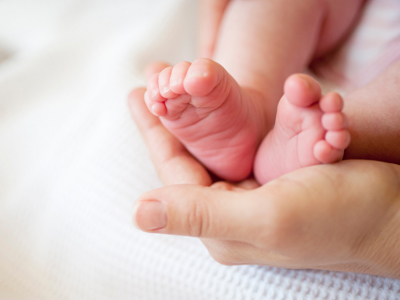
Baby died aged one week after pregnant mother’s concerns were dismissed
A baby girl died aged one week at the Homerton Hospital after her mother’s concerns about abdominal pains and reduced fetal movements were dismissed in late pregnancy by North Middlesex Hospital maternity triage unit.
Making a stillbirth or neonatal claim
You can make a claim against the hospital trust(s) responsible for the death of your child due to negligent treatment. If you have reason to believe your stillbirth or the neonatal death of your baby was down to mistakes or negligence on behalf of the medical staff, you may have a claim. Someone from our medical negligence triage team will listen to your story. They will assess the details and whether you have a case to claim stillbirth or neonatal death compensation. If you do, they will advise you on the next steps. It can be helpful to collect any supporting evidence to strengthen any neonatal death or stillbirth compensation claims. Evidence can include medical records, medical professionals’ statements, check-up appointment details and anything else related to the pregnancy.
Neonatal death is when a baby is born alive but dies within 28 days. It’s not always clear why a baby dies so young.
There are some known causes of neonatal death – usually related to a baby being born prematurely. Often these can be identified, but sadly there may not be a cure.
In some cases, neonatal death may be preventable but still occurs due to medical negligence. It could be a mistake made by an obstetrician, midwife or neonatologist. These can include:
- Failure to spot an infection
- Inadequate monitoring of the baby’s heartbeat during labour
- Not arranging a baby deprived of oxygen at birth to receive active or passive cooling
- Any other (in)actions leading to neonatal death.
Should any of these have happened to your child, then you may have a claim for neonatal death compensation.
When a baby is born dead after 24 weeks of a pregnancy, either before or during the delivery, it is a stillbirth. Stillbirth differs from a miscarriage – which refers to the loss of a baby before 24 completed weeks of pregnancy.
If your baby dies before delivery, then you may wait until labour starts naturally or you can ask to be induced, especially if the mother’s health is at risk. Not all stillbirths are preventable, and the cause isn't always identifiable.
Stillbirth can also be a consequence of negligence, especially if medical staff’s actions or inaction result in a preventable death.
When this is the case, you may be able to claim for stillbirth compensation. Examples of medical negligence causing stillbirth include:
- Missing symptoms or misinterpreting test results in antenatal appointments
- Not providing regular check-ups during pregnancy
- Failing to treat symptoms quickly enough or treating them incorrectly
- Not referring to a consultant on the basis of unusual test results
- What happens after a stillbirth or neonatal death?
The decisions you make after a stillbirth are highly personal, and the hospital must respect them. You may want to hold your baby, take photographs or mementos (such as a handprint). Some parents also choose to name their baby – the decision is entirely yours.
Your doctors will offer to carry out tests to discover the cause of the stillbirth. You also have the option of a post-mortem to identify the cause – this can only happen with your written consent.
By law, you must register a stillborn or neonatal death within 42 days in England and Wales or 21 days in Scotland.
You may want to contact stillbirth and neonatal charities such as Sands for their bereavement support services. They offer a Freephone helpline, mobile app and online community to help you get through this difficult period.
The amount of compensation you can expect to receive will vary depending on your circumstances and the extent of any psychiatric injury suffered.
Typically, the amounts received for neonatal death and stillbirth compensation can range from a few thousand pounds to six-figure sums. You can claim for:
- Loss of earnings (for the time taken off work)
- Expected future financial losses (including further lost income for predicted time off work)
- Care and support
- Therapy and counselling costs
- Travel costs between therapy sessions
- Childcare costs
- Funeral expenses
You can also claim for emotional pain and distress.
Our medical negligence experts can advise you on how much neonatal or stillbirth compensation you could expect to receive.
Why choose Leigh Day?
Our medical negligence team has more than 35 years’ experience working across cases related to stillbirths and neonatal deaths. We have listened to many reports of stillborn and neonatal deaths, challenging hospital trusts, taking on cases and successfully securing settlements for a variety of clients. Within our team of medical negligence lawyers, we have individuals with years of experience, knowledge and success working across stillborn and neonatal death claims.
Blogs

Kirkup Report into East Kent Maternity Services is a sad reflection of unlearned lessons in hospitals across England
Associate Solicitor Stephen Clarkson and trainee solicitor Meghana Hegdekar discuss the report by Dr Bill Kirkup into maternity services at East Kent Hospitals, the criticisms highlighted and what lessons can be learned going forward.
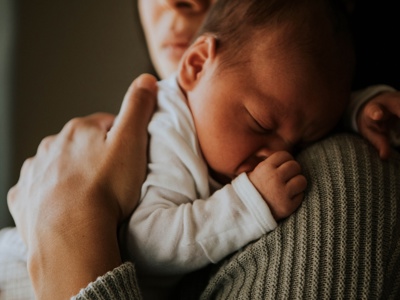
Birth Trauma Inquiry Report finds a pattern of poor maternity care across the UK
Following the publication of the Birth Trauma Inquiry report, Sanja Strkljevic, Partner and Lily Hartley-Matthews, Trainee Solicitor reflect on two of the report’s key themes: a failure to listen and a lack of consenting in maternity services



